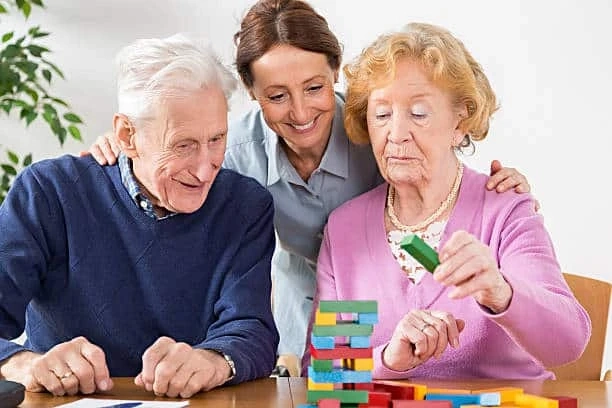Dementia-related agitation can result in a range of benign behaviors, like pacing and repeating questions to violent outbursts. Fortunately, caregivers have several options to help their loved ones regain a sense of calm. Anchorage Home care professionals share a few strategies to help your aging loved one ease dementia-related agitation and enjoy a daily routine with you.
Understanding Dementia-Related Agitation
Before delving into practical strategies, it\'s important to understand the underlying causes of agitation in seniors with dementia. Agitation can stem from a variety of factors, including:
Communication Difficulties: Seniors with dementia may struggle to express their needs, leading to frustration and agitation.
Unmet Needs: Basic needs such as hunger, thirst, pain, or discomfort can trigger agitation when left unaddressed.
Sensory Overload: A noisy or chaotic environment can overwhelm individuals with dementia, leading to increased agitation.
Changes in Routine: Disruption to established routines can cause confusion and distress.
Physical Discomfort: Underlying medical issues like urinary tract infections or pain can contribute to agitation.
Medication Side Effects: Some medications can exacerbate agitation in dementia patients.
Fear and Anxiety: Memory loss and confusion can lead to heightened fear and anxiety, resulting in agitation.
Practical Strategies for Easing Agitation
1.Check for a Physical Cause
Agitation is often triggered by something that leads to physical discomfort. This reason for agitation is particularly common among seniors who face difficulty with oral language, as they may try to convey their discomfort by their behavior. Check if your loved one is hungry or has had an incontinence event. If not, the dressing may irritate your loved one, or he or she may be tired. With the pace of time, you will begin to identify your loved one\'s behavioral patterns he or she uses to express physical discomfort. This will allow you to take appropriate action to prevent it.
2. Reduce Environmental Triggers
Seniors with dementia may respond to frustrating aspects of the environment. For example, your loved one may start to pace if he or she experiences anxiety after hearing a piece of upsetting news on television or a story by someone. As a result, he or she may shout in an attempt to be heard over a blaring television. Listen to your loved one for a few minutes and look around the room your loved one is in to find ways to make him or her calm down, as telling your loved one to calm down will make his or her mood worse.
3.Use Soothing Language
Using harsh language when your loved one is agitated will do little to no help to the situation. Try to use a calmer tone to respond to agitation. Using positive language and a soothing voice can let your loved one know you are still in control. In such a situation, seniors often respond by mimicking the calm language of their caregiver and begin to calm down.
4.Try Switching Activities
The symptoms of dementia can cause seniors to become frustrated by certain activities. The agitation seems to be triggered by frustration; make it a point to see if the activity you and your loved one are engaged in can wait. For example, you can ask your loved one to take a break from folding the laundry and help water the plants in the yard. Switching activities may help take your loved one\'s mind off what is making him or her agitated.
5.Use the Sense of Touch
Though this technique should only be used with seniors who like the sense of warm touch, a reassuring hug or pat on the arm may be all your loved one may need to feel happy. You can also give your loved one a relaxing hand massage before engaging in an activity you know may cause agitation. Engaging your loved one in a relaxing activity that involves a sense of touch and can help him or her enhance his or her mood to prevent agitated behavior during a bath or mealtime.
Caring for an older adult with dementia can be challenging for family caregivers. If you need assistance in caring for your loved one or your loved one needs help to manage symptoms of a serious illness, consider hiring professional at- home care Anchorage Families should opt for a reliable home care provider in their area to allow their loved ones to age in the comfort of their homes.



